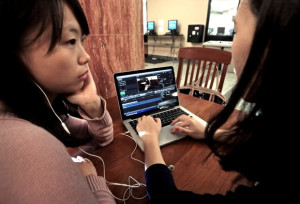This article is courtesy of U.S. News & World Report, where it was originally published.
As a newly independent young adult attending and paying for college, you’ll experience many new and exciting things. But there’s one thing we hope you’ll never experience: being targeted by con artists looking to take advantage of inexperienced collegestudents who are struggling to support themselves.
International students are especially vulnerable to scholarship scams, as they must juggle starting college with becoming familiar with a new country and culture.
Here are some tips and resources to help students avoid falling for some of the most common scams.
1. Don’t fall victim to telephone or Internet scams: If you are an international student in the U.S., you could be seen as an easy target for scammers.
In spring 2013, Cornell University alerted international students to a scam in which someone claiming to be an immigration officer called students and told them they had not completed their paperwork correctly. These students were asked to send money via Western Union to purchase a temporary visa in order to stay in the country. In some cases, students were told there were criminal cases pending against them for visa violations as a way to scare them into sending money.
Stanford University alerted their international students to the same type of scam, as did the University of Massachusetts and Purdue.
Remember to never share personal information over the telephone, especially your Social Security or passport number. Government officials will never call and ask for money over the phone, so if this happens to you, make sure you report it to the Federal Trade Commission.
[Get more information on college scholarship scams to watch out for.]
2. Don’t pay to apply for scholarships: When it comes to financial aid, be wary of scholarship programs that require an application fee or sound too good to be true. Legitimate scholarship programs will include selection parameters, which might include a high GPA, participation in clubs and activities or volunteer experience.
If a scholarship claims to be guaranteed to all applicants or does not require an essay or application asking for information about your education or experiences, it might be fraudulent.
Do some research to make sure the sponsor of any scholarship you apply for is legitimate. If you are unsure about the sponsor of a scholarship program, you can contact the Better Business Bureau in the city where the scholarship service is located, or the FTC.
[Find scholarships through your state higher education office.]
3. Be suspicious of banks that charge large upfront fees in exchange for low interest rate loans: Besides scholarships, other forms of financial aid generally come from the government in the form of grants or loans you receive in your financial aid package after filling out the FAFSA.
If you plan to take out private bank loans, make sure you deal with a trusted bank and understand any fees and interest charges you will incur. If you are asked to pay a large fee upfront in exchange for a very low interest rate or are asked to abide by an extensive list of regulations, you are right to be suspicious. There are trustworthy sources of funding for college, but student loans from U.S. banks can be difficult for international students to obtain.
Most legitimate and reputable banks won’t ask you to pay large fees to get a loan. Always remember – if it sounds too good to be true, it probably is.
[Find financial aid and scholarships for international students.]
4. Don’t send a deposit for an apartment before visiting in person: If you’re not planning to live in your college’s dorms, it can be a challenge to arrange housing for school – even more so when you live in a different state or country. Many international and out-of-state students will search for apartments online and might be tempted to send a deposit without actually seeing the place firsthand, especially if it seems to be an amazing deal.
But students must beware of a common housing scam. Not wanting to miss out on a great price, students might reply to an advertisement and wire a housing deposit, only to arrive in the U.S. and discover the apartment was fake and their money is gone.
If you’re not living in your school’s residence halls, avoid making a payment on a rental property until you know it’s the real deal. It might be worth your time to stay in a hotel for a few days and finish your apartment hunting after your arrival. You can also have a trusted friend visit the space for you to verify that everything checks out.
If you think you might be caught in a scam, your state department of consumer protection and state attorney general’s office are trusted institutions you can turn to. The National Consumer League’s Fraud Center will also investigate and advocate on your behalf.
If you receive a strange email or phone call, write down the contact information of the organization contacting you and talk to an adviser at your school before you give out any financial or personal information.
Don’t be afraid to report a scam if you think you might have been victimized. You might be able to help other students avoid falling into the same situation.
Angela Frisk holds a Bachelor of Science degree from the University of Minnesota—Twin Cities and is a former scholarship recipient. She joined Scholarship America in 2012.




